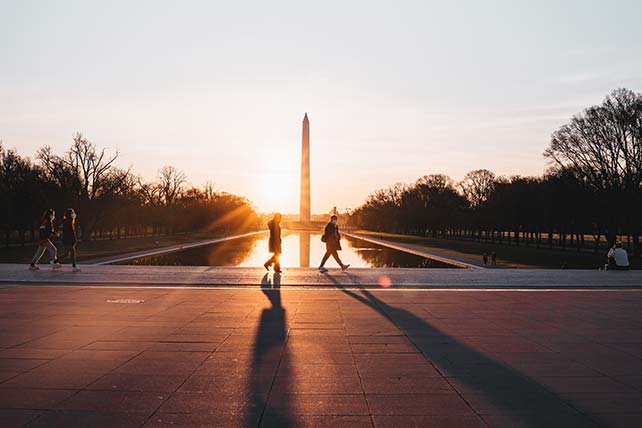WASHINGTON (BP) – The Ethics & Religious Liberty Commission will address four categories of priorities in what it acknowledged will be a challenging year for legislating and governing, the Southern Baptist entity announced Monday (Jan. 30).
The ERLC issued its 2023 Public Policy Agenda, which is divided into four general sections: Religious liberty; sanctity of human life; family and marriage; and human dignity.
The federal government and the commission are each entering “a new season,” ERLC President Brent Leatherwood and Policy Manager Hannah Daniel wrote in the 16-page document.
Congress is divided following the 2022 elections. The Republican Party took back control of the House of Representatives by a slight majority, while the Democratic Party narrowly maintained control of the Senate. The parties disagree over such issues as abortion and lesbian, gay, bisexual and transgender rights.
It will be the first full year for Leatherwood to be president of the ERLC after his unanimous election by trustees in September.
RELATED: ERLC Urges CVS, Walgreens To Protect Preborn, Consciences
After “a season of transition,” the ERLC will continue to seek “to build consensus on the issues listed in this document and others in our portfolio with officials across our federal government,” Leatherwood and Daniel wrote.
“[B]road bipartisan support” may exist on such issues as reforming the criminal justice system and adopting a long-term solution for undocumented immigrants who were brought to the United States as children, they wrote. Leatherwood and Daniel said such proposals as enacting safeguards for preborn children and their mothers and enhancing religious liberty protections will probably find “much less consensus.”
Leatherwood and Daniel referred to 2022 as “a history-making year for the cause of life” because of the Supreme Court’s June overruling of the 1973 Roe v. Wade decision, which legalized abortion nationwide. They described Roe’s reversal, which returned abortion regulation to the states, as “the culmination of 50 years of dedicated work by Southern Baptists and other pro-life advocates.”
The Supreme Court ruling was, “in many ways, the beginning of a new chapter,” they wrote. “In an ever-changing landscape, we must continue to advocate for life both at the federal and state levels while also taking on new frontiers such as ‘abortion tourism’” and “the increasing accessibility of the abortion pill.”
In addition to its support for pro-life legislation and regulations, the ERLC will focus its work through the Psalm 139 Project on states considered to be “abortion destinations” in post-Roe America, according to the agenda. Psalm 139 is the commission’s ministry to provide ultrasound technology to pregnancy centers and train staff members in its use.
In addition to its work at the federal level, the ERLC “will continue to work in partnership with [Baptist] state conventions and state advocacy groups on issues of missional priority that are of national importance,” Leatherwood and Daniel wrote.
In an ERLC release, Leatherwood quoted from The Baptist Faith and Message, the SBC’s statement of faith: “Every Christian should seek to bring industry, government, and society as a whole under the sway of the principles of righteousness, truth, and brotherly love.”
RELATED: Brent Leatherwood, ERLC Leaders Meet With Biden’s Staff, Congressional Members
“This statement guides us in our task as we engage in a chaotic public square,” Leatherwood said. “In advocating for these policy goals, we are ever mindful that our ultimate responsibility is to be messengers of the Gospel. I hope Southern Baptists will join me in praying that we will represent our Savior well as we interact with public policy leaders” regarding issues in 2023.
Daniel said in the release, “This year holds both new opportunities and challenges for our work as we begin a period of divided government, enter the first legislative session in a post-Roe world, and face deepening divides among our citizenry.”

